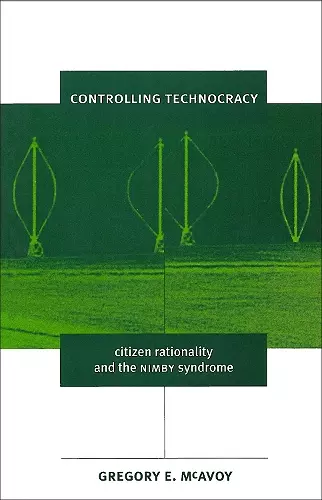Controlling Technocracy
Citizen Rationality and the NIMBY Syndrome
Format:Paperback
Publisher:Georgetown University Press
Published:1st Nov '99
Currently unavailable, our supplier has not provided us a restock date

This book explores the policymaking process, emphasizing the importance of citizen opinion in environmental decisions, particularly regarding hazardous waste management.
In Controlling Technocracy, Gregory E. McAvoy provides a thorough examination of the policymaking process, delving into the motivations of public officials and the resources they utilize to shape public opinion. He discusses the significant influence of interest groups and the evolution of waste reduction programs across Minnesota and other states. A key focus of the book is the resolution of disputes over hazardous waste sites, where expert opinions often overshadow public concerns, particularly the 'not-in-my-back-yard' (NIMBY) reactions.
McAvoy challenges the prevailing assumption that policy experts are inherently better suited to determine the general welfare. He argues that citizen opinion and democratic dissent play a crucial role in environmental policymaking, especially in the context of an unsuccessful attempt to site a hazardous waste facility in Minnesota. Through this case study, he illustrates how informed citizens can effectively challenge the need for such facilities, thereby highlighting the importance of public engagement in the decision-making process.
The book integrates various research methods, including archival material, interviews, and quantitative survey data, to argue that NIMBY movements can reveal miscalculations and serve as a necessary check on the often partisan views of policy experts. Controlling Technocracy is a valuable resource for those involved in hazardous waste policy, environmental policy, public administration, and political science, as it emphasizes the virtues of democratic decision-making over technocratic authority.
ISBN: 9780878407415
Dimensions: unknown
Weight: 281g
184 pages